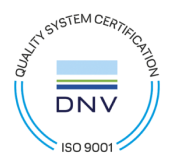What does the title BOA or special investigating officer entail?
A special investigating officer, abbreviated as BOA, is a sworn official who is provided with specific investigative powers. These investigative powers are intended to enforce a specific part of the legal order. Some examples of extraordinary investigative officers are enforcers, education officers, game wardens, environmental officers, conductors, immigration officers or social investigators. In today's society, the role of BOAs is becoming increasingly important, which is why the profession is also described as 'the profession of the future'.
What are the tasks and powers of a BOA?
There are approximately 30,000 BOAs active in the Netherlands, spread over approximately 1,100 different agencies. Some of the BOAs must be able to use force in their position. These BOAs therefore have certain police powers, such as the authority to search or use force such as a baton, pepper spray or a firearm. It is increasingly common for BOAs to carry handcuffs. Becoming a BOA not only requires successful completion of a basic BOA training course, but additional training is also necessary for some positions. Our teachers will be happy to give you more information about this during a personal conversation.
Our educational approach
This recognized BOA training includes the so-called mandatory subjects, such as Legal Knowledge and Conversational and Approach Techniques. However, we believe that at the same time attention should also be paid to topics such as aggression control and approach technique. These aspects are included in our intensive training program, so that theory and practice complement each other perfectly during the BOA training. The training is provided by a very experienced teacher, who can prepare you excellently for the exam.
Duration of the training
You will follow the classroom BOA basic training at our training center in Gilze-Rijen for 8 days. In between classroom lessons you will receive various home study assignments that prepare you for the exams: Legal Knowledge and Conversation and Approach Techniques.
Drawing up the combination voucher and the practical component of Conversation and Approach Techniques are part of the BOA training and therefore do not have to be followed separately.
Overview of components of BOA training:
Part 1: The position of extraordinary investigating officer
Part 2: Cooperation with the police
Part 3: Constitution
Part 4: Criminal Code
Part 5: Code of Criminal Procedure
Part 6: Other relevant laws
Part 7: Observing and signaling
Part 8: The ticket interview
Part 9: The combination voucher
During the initial lesson you will be given all required teaching materials, including a coupon book. In addition, your teacher will provide you with home study assignments. You can complete these assignments at your own leisure and return them digitally. Your personal teacher corrects your homework and provides you with feedback and recommendations. This unique mix of classroom lessons and (limited) home study has proven to be extremely effective in practice, meaning that the majority of our students pass the national exam in one attempt.
The exam
The exam is divided into two parts:
The theoretical part, Legal Knowledge, includes an exam consisting of 50 multiple choice questions, and is administered by Cito. This covers parts 1 to 6 as discussed earlier.
The practical part, Conversation and Approach Techniques, is organized by the Supervision and Enforcement Examination Institution. This covers parts 7 to 9 as mentioned earlier.
After successfully completing the exam, you will receive the Special Investigation Officer certificate recognized by the Ministry of Security and Justice. After being sworn in as a BOA, this certificate is still valid for 5 years.
Who is this training developed for?
This training has been developed for people who want to work as a special investigating officer (BOA) to contribute to public order and safety. It is suitable for both individuals who aspire to a career in enforcement and for current employees of municipalities, public transport companies or environmental organizations who want to obtain their official BOA certification. With no specific prior education requirements and a requirement for a good command of the Dutch language, this course offers an accessible route to a meaningful career in the public sector.
Experiences BOA training IACA:

Kira
Local authority
Very educational!
Education: BOA
Review: “The IACA Special Investigation Officer training was very educational. In a short time I learned the most important skills for this profession. A good basis for my new position.”

Frieda
Private
Top education!
Education: BOA
Review: “Yes! I now have the BOA qualification thanks to this top training! The teachers were very involved and the program was super interesting. Highly recommended!”

Jack
Forest Service
Great teachers!
Education: BOA
Review: “The BOA training was tough, but I learned a lot about investigation and enforcement. Great teachers and good guidance during the training!”

Corne
Local authority
Very useful!
Education: BOA
Review: “A solid BOA training course in which all relevant skills were covered. Although intensive, I learned a lot about my new position as an investigating officer. I am happy that I chose IACA for this study.”
Teaching methods: open, closed or customized
Although this training is mainly offered in a classroom setting, we understand that you may want to ask questions in a private setting due to the nature of your work. We can provide a private training at our location for a minimum of twelve participants. We also offer fully customized training courses, based on (parts of) this training course. We are happy to provide you with a tailor-made proposal.
All our instructors have been screened and have concluded confidentiality agreements with various government services. A specific confidentiality agreement for your organization or service is also possible.
Certification & Recognition
Our training institute has been tested by and registered with the CRKBO (Central Register for Short Vocational Education).
After successfully completing the national exams at Cito and ExTH, you will obtain the recognized diploma:
 Extraordinary Investigative Officer
Extraordinary Investigative Officer
Our courses and diplomas are widely recognized and highly regarded by various government services, as well as by a wide range of international organizations outside the government. Whether you already work for such an organization or are pursuing a position with one of these employers, our training courses are a valuable addition to your CV.
Subsequent modules
As additional training you can choose one of the practical courses:
Practical Diploma Private Researcher (Post-MBO)
Interrogation, interview technique & body language
Hypothesis formation and scenario thinking
 International Anti Crime Academy is a training partner of the UWV.
International Anti Crime Academy is a training partner of the UWV.








